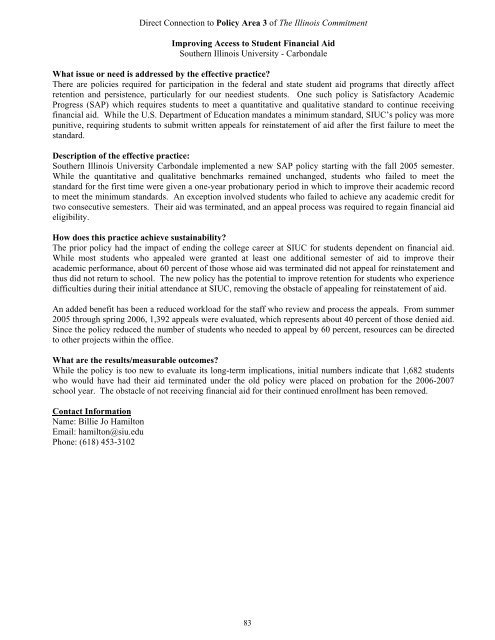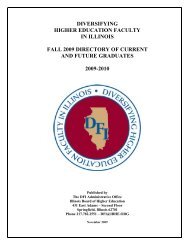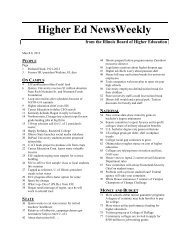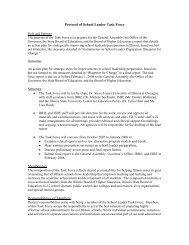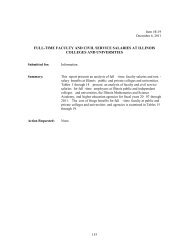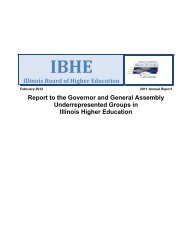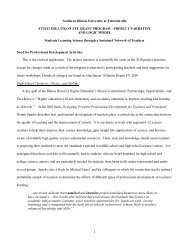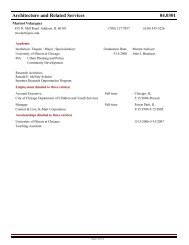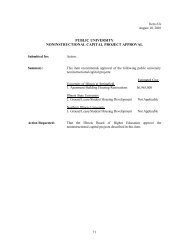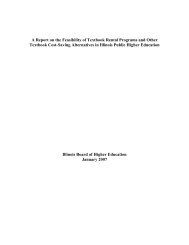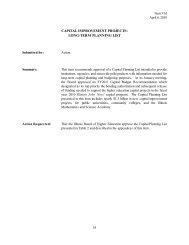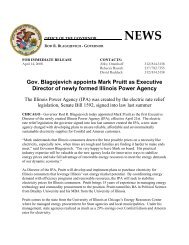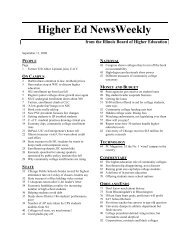Title of Effective Practice: - California Postsecondary Education ...
Title of Effective Practice: - California Postsecondary Education ...
Title of Effective Practice: - California Postsecondary Education ...
Create successful ePaper yourself
Turn your PDF publications into a flip-book with our unique Google optimized e-Paper software.
Direct Connection to Policy Area 3 <strong>of</strong> The Illinois Commitment<br />
Improving Access to Student Financial Aid<br />
Southern Illinois University - Carbondale<br />
What issue or need is addressed by the effective practice?<br />
There are policies required for participation in the federal and state student aid programs that directly affect<br />
retention and persistence, particularly for our neediest students. One such policy is Satisfactory Academic<br />
Progress (SAP) which requires students to meet a quantitative and qualitative standard to continue receiving<br />
financial aid. While the U.S. Department <strong>of</strong> <strong>Education</strong> mandates a minimum standard, SIUC’s policy was more<br />
punitive, requiring students to submit written appeals for reinstatement <strong>of</strong> aid after the first failure to meet the<br />
standard.<br />
Description <strong>of</strong> the effective practice:<br />
Southern Illinois University Carbondale implemented a new SAP policy starting with the fall 2005 semester.<br />
While the quantitative and qualitative benchmarks remained unchanged, students who failed to meet the<br />
standard for the first time were given a one-year probationary period in which to improve their academic record<br />
to meet the minimum standards. An exception involved students who failed to achieve any academic credit for<br />
two consecutive semesters. Their aid was terminated, and an appeal process was required to regain financial aid<br />
eligibility.<br />
How does this practice achieve sustainability?<br />
The prior policy had the impact <strong>of</strong> ending the college career at SIUC for students dependent on financial aid.<br />
While most students who appealed were granted at least one additional semester <strong>of</strong> aid to improve their<br />
academic performance, about 60 percent <strong>of</strong> those whose aid was terminated did not appeal for reinstatement and<br />
thus did not return to school. The new policy has the potential to improve retention for students who experience<br />
difficulties during their initial attendance at SIUC, removing the obstacle <strong>of</strong> appealing for reinstatement <strong>of</strong> aid.<br />
An added benefit has been a reduced workload for the staff who review and process the appeals. From summer<br />
2005 through spring 2006, 1,392 appeals were evaluated, which represents about 40 percent <strong>of</strong> those denied aid.<br />
Since the policy reduced the number <strong>of</strong> students who needed to appeal by 60 percent, resources can be directed<br />
to other projects within the <strong>of</strong>fice.<br />
What are the results/measurable outcomes?<br />
While the policy is too new to evaluate its long-term implications, initial numbers indicate that 1,682 students<br />
who would have had their aid terminated under the old policy were placed on probation for the 2006-2007<br />
school year. The obstacle <strong>of</strong> not receiving financial aid for their continued enrollment has been removed.<br />
Contact Information<br />
Name: Billie Jo Hamilton<br />
Email: hamilton@siu.edu<br />
Phone: (618) 453-3102<br />
83


